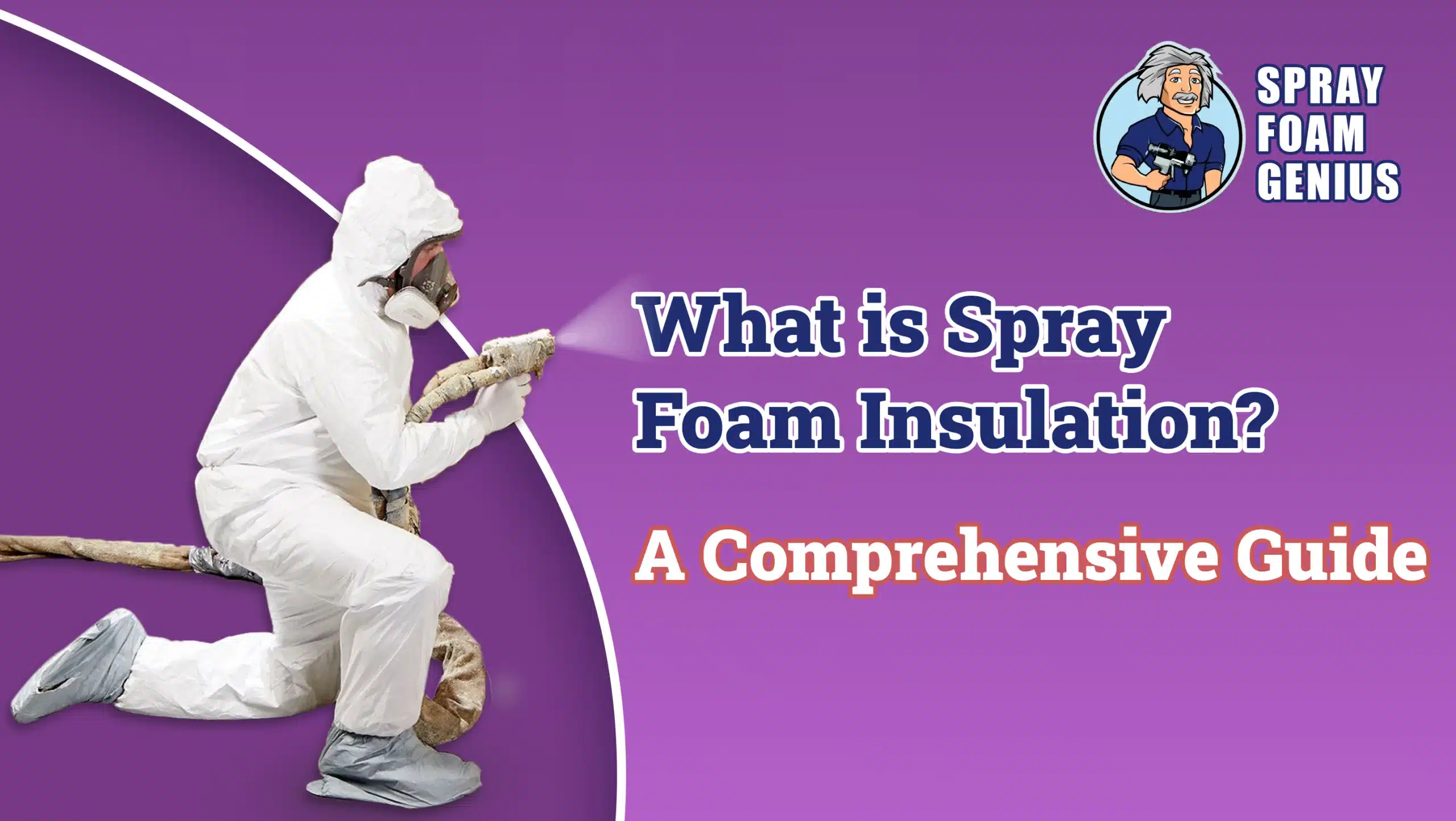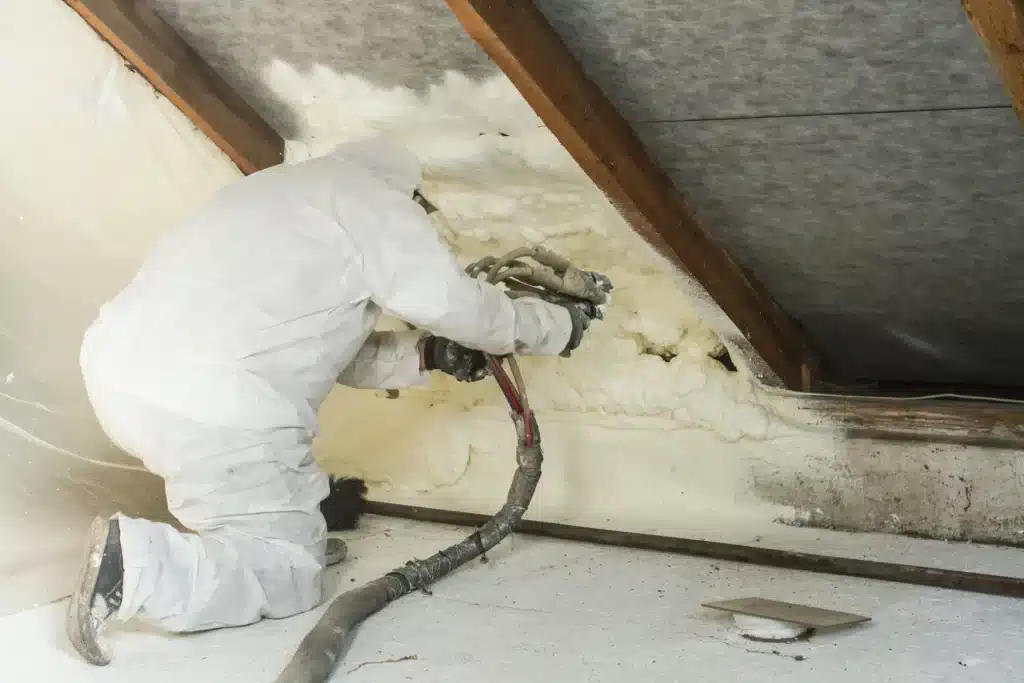
Knowing Spray Foam Insulation
Spray foam insulation is advanced due to its outstanding thermal resistance as well as the air-tight seal with regulated moisture. Consequently, it presents itself as the most preferred material in residential, commercial, as well as industrial construction since it is energy-efficient and relatively quite durable compared to other traditional insulating materials that are used. Unlike most traditional insulation materials, spray foam does not expand when applied but expands after they have been applied to fill the gaps and cracks and seal the air envelope.
As a spray foam insulation contractor and if you are aware of the basics of spray foam insulation, you will be in a position to advise your clients, provide good services, and grow your business.
How Spray Foam Insulation Works
This is on-site-foam installation with liquid chemicals in either polyol resin and isocyanate. Both chemicals combine immediately when contacted. Therefore, the surfaces will be covered in an expanding kind of foam and dry as a solid insulating formation.
Forms of Spray Foam Insulation
Open-Cell Spray Foam
- Composition: Lightweight and non-dense.
- R-Value: R-3.5 through R-4 per inch.
- Best For: Applying for interior walls, soundproofing, or where flexibility is required.
- Advantages: Cheap, breathes, and expands so much to fill the tiny cracks and gaps.
Closed-Cell Spray Foam
- Density: It is dense and rigid.
- R-Value: Much higher, around R-6 to R-7 per inch.
- Best For: Exterior walls, attics, crawl spaces, and commercial applications.
- Advantages: It makes an airtight and watertight seal against air and moisture. It provides structure. It is a good insulator.
Benefits of Spray Foam Insulation
- Highly Efficient in Energy
Spray foam contributes toward the reduced transfer of heat which, in effect, reduces energy loss. It keeps homes as warm as 50 percent when winter is on and cooler during summer rather than the traditional types of insulation used. - Best Air Sealing
Unlike the spray of fiberglass or cellulose, the spray foam will expand to take space without having air gaps that lead to energy loss as well as discomfort. - Mould and Water Resistance
They do not let moistures enter into them. They are not prone to being molded and have the risk of molds because they cause much structural damage alongside health. - Enhanced Strength of Structure
Closed-cell spray foam has a very dense and solid structure which would make the structure of walls, roofs stronger than before and eventually increase the structural durability of any building. - Acoustic Properties
Open-cell spray foam has a high potential to reduce the transmission of noise in rooms and floors, and hence it can be used for any residence and commercial site. - Environment Friendly
Spray foam insulation does not use extra energy but reduces it, and hence lesser carbon emission leads to an environment which supports sustainability.
Practical Applications of Spray Foam Insulation

- Attics: Reduces heat loss, improves HVAC
- Walls: Improved insulation results in reduced draughts.
- Basement & Crawl Space: It eliminates moisture-based issues and also improves air quality purification inside a house.
- Roofing System: It enhances durability and also ensures water-tightness of the commercial construction work.
- Commercial and Industrial Purpose: Suitable for warehouses, cold storages, and other agricultural constructions.
Common Myths About Spray Foam Insulation
Myth 1: Spray Foam Insulation is Way Too Costly
Spray foam insulation is more expensive than other insulation products. At least, in terms of saving money on electricity bills, that would have to be recouped over time.
Myth 2: Spray Foam is Toxic to Health
Once applied, there are no further emissions of harmful chemicals to the air again. Spraying foam instead produces improved indoor air quality with fewer allergens and pollutants.
Myth 3: Spray Foam is Only Suitable for New Constructions
This versatility applies to its ability to be applied to both new constructions and retrofitting. As such, there is no lack of this versatility on the part of this spray foam as an insulation material.
Why Installers Love It
This spray foam installation is a technically demanding process which requires specific machinery and expertise for proper application. Quality installation is only a better system performance and efficiency, and on the client’s side, it means satisfaction.
Why Hire a Professional for the Installation Job
- Spray foam is mixed and applied correctly.
- Meets the building codes and safety requirements.
- Eliminates off-ratio foam, which would give a lousy performance in insulation.
Spray Foam Business Leads
We are an SEO, Google Business Profile optimization, website development, lead generation, and reputation management company specializing in targeting only spray foam insulation contractors in the USA and Canada.
Want more customers? Done. Make you dominate local searches and generate top-quality leads.
Want to be a top-quality online presence? Our expert digital marketing services position your business at the top of its industry.
Want to make more dollars? The winning strategies will yield you more calls, appointments, and conversions.
Call now in the USA: 877-840-FOAM
In Canada: 844-741-FOAM
Email: [email protected]
Come visit us at https://sprayfoamgeniusmarketing.com/ for ways we might help propel your business.
So, don’t let the competition run off with the circus. Subscribe today to Spray Foam Genius Marketing so that your business might flourish tomorrow!
- Social Media Marketing for Spray Foam Businesses: What Works in 2025? - February 6, 2025
- Best SEO Strategies for Spray Foam Insulation Contractors to Rank #1 on Google - February 6, 2025
- What is Spray Foam Insulation? Benefits and Applications - February 5, 2025

